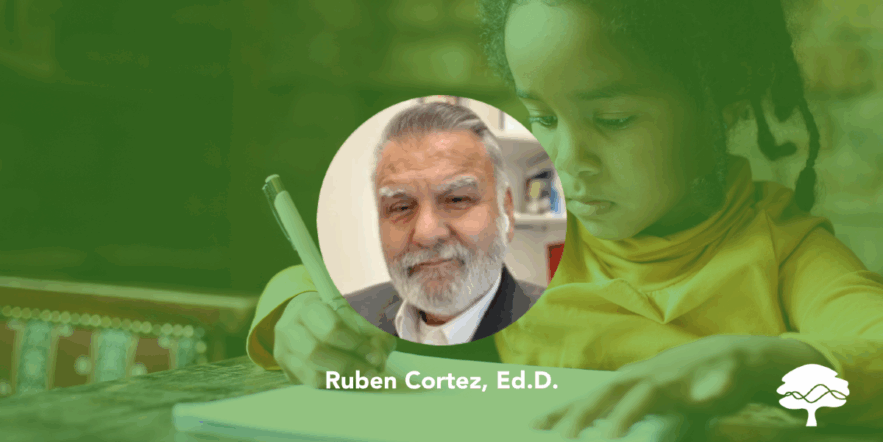Ruben Cortez, Ed.D., faculty in the department of Human Development and Education, is experimenting with virtual reality (VR) to make online learning via video conference more interactive and to make the remote experience more engaging and effective for students and teachers.
Dr. Cortez’s first experience with using VR in an instructional setting was through a program funded by the Branch Alliance for Educator Diversity to give students the opportunity to simulate a teaching experience via headset. That technology proved effective. “The students told us that 10 minutes in a simulator felt like an hour of classroom teaching,” Dr. Cortez says. Given that enthusiasm, Dr. Cortez was happy to sign on when he was approached by the instructional design team from The Community Solution with an opportunity to partner on a VR project. He hoped the VR setting would create community and improve academic performance.
As part of the VR classroom exercise, Dr. Cortez and his eight students met in a VR simulation room. Each created an avatar, most choosing avatars that looked like themselves. The initial meetings were conducted around a virtual campfire as they discussed details of the class, such as what apps would be best for the course objectives. The first subtle difference from a video conference class that Dr. Cortez noticed came when he turned to address a student next to him. That is not something people do in the flat world of a video chat.
In addition to the campfire, the class met in other environments, including a snowy mountainside, the surface of the moon, the Oval Office, and a Chinese restaurant. In each case, the lesson would revolve around the setting. For example, in the Chinese restaurant, Dr. Cortez asked each student to put together a healthy meal and an unhealthy meal, and the class discussed the characteristics of each.
Students experienced an increased sense of connection from the beginning, Dr. Cortez says. They felt so at home in the virtual space that four students continued to meet after the class was over. Another student commented, “This was the best online course I ever had, because most of my online courses feel like independent work, and I don’t feel connected to the people around me.”
Having seen that VR creates a better online experience, Dr. Cortez hopes to replicate this approach in different academic disciplines. “It has a better chance of creating community with students among each other,” Dr. Cortez says, “and they really enjoy collaborating.”

